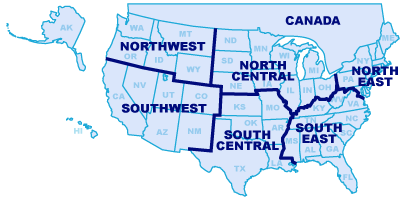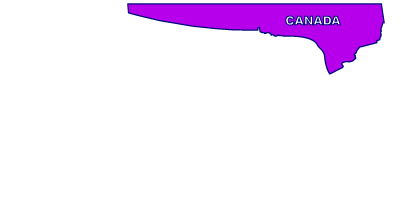Christian Colleges For Psychology
By clicking on the "Continue" and/or "Submit Request" button(s) on this form I am providing my electronic/ESIGN signature and agreement of expressed written consent to permit The Christian Connector, Inc. and the schools selected, and the parties calling/texting on behalf of the schools, to contact me at the phone number I provide for marketing purposes, including through the use of automated technology, SMS/MMS messages, and prerecorded/artificial/AI generated voice calls about education related opportunities. Message and data rates may apply. I understand that my consent is not required to obtain any goods or services from The Christian Connector or any of the colleges/universities. I acknowledge that I may select as many, or as few, schools as I wish to receive information from. I agree to the terms and privacy policy as well. I understand I can call 800-667-0600 to request information without providing any phone number.
Click on the map below to bring schools in the selected region to the top of the list:








Articles on Psychology:
Christian Colleges with Psychology Majors
Article by Rachelle Wiggins
“God’s glory is at stake in the therapy of our day… Soul care, properly conceived, has a significant role to play in the end for which God created the world.” ~Eric Johnson
Psychology is the science of mind and behavior. It is an interdisciplinary field where the goal is to describe, explain, predict and control human behavior. It is concerned with the diagnosis and treatment of behavioral disorders. As a psychology major you will learn about psychological perspectives and study the history of psychology including famous theorists such as Freud, Pavlov, Piaget and Skinner. You’ll be introduced to diverse methods of research and methods of assessment and testing. Most importantly, you will begin to understand human temperament and how psychology interfaces with complex issues like eating disorders, mental illness, addiction and learning. You will understand yourself better, as well as the people around you, and will learn to better handle stress management, decision-making, conflict-resolution and complicated relational dynamics.
Psychology majors are generally people-oriented. Typically, these are the individuals inquisitive about the personalities of those around them, who notice patterns in behavior and crave knowledge about how the mind works. But it takes more than an interest in social interaction to succeed in this popular major. In a field where application of knowledge and the ability to make accurate assessments is crucial, critical thinking is a must. It is also helpful to be administrative and organized since psychologists must keep accurate records and juggle full schedules. If your ultimate goal is to become a counselor or therapist, it is imperative to possess traits of compassion, helpfulness and patience in order to empathetically walk clients through a process of self-discovery and gradual behavioral change. This one-on-one teaching of life skills sometimes requires time and persistent dedication. Finally, it is important to be emotionally healthy and to have strong coping skills in a career where stress and high burn out are expected.
So, what are some of the classes you can expect to take as a psychology major? Once your general credits are complete, you will take a huge array of psychology courses like Abnormal, Social, Cognitive, Developmental and Physiological Psychology. You may spend time doing lab work and may have an opportunity to present or even publish your own research findings. You will also likely be required to complete a psychology-related internship. Other classes you may encounter are:
- Methods of Inquiry
- Life Span of Human Development
- Perception and Sensation
- Research Methods
- Psychology Statistics
- Neuroscience
Psychology is a diverse major with career outcomes to fit all sorts of giftings and interests. Some specializations you might consider include developmental psychology (concerned with child and adolescent growth and learning), forensic psychology (a merger of law and psychology), or industrial-organizational psychology (dealing with work place satisfaction, safety and efficiency). In order to become a licensed therapist or counselor, an advanced degree is required and about 25% of psychology majors achieve this goal. Another 40% springboard off their psyche degree to attain a master’s in law or business. Students graduating with a bachelor’s degree in psychology find employment in a number of fulfilling roles:
- Social worker/case manager
- Career counselor
- Probation/parole officer
- Lab/research assistant
- Rehab specialist
- Addictions coach
- High school psychology teacher
Whether you envision yourself working with psychiatric patients in a hospital neurology ward, in private practice as a marriage and family therapist or conducting research at a university, if your dream is to understand and help people, then a psychology major might be the perfect major for you!
A future in Psychology
By Jennifer Bailey
Are you passionate about people? A natural problem solver who thrives on making a difference in others’ lives in a big way? Clearly, many people are, as psychology is one of the top five most popular college majors. Sometimes the results are not seen right away. You must be patient and be able to offer what you can to others and not take it personally if your advice is not accepted in the moment. It takes a special person to commit to this important line of work long term.
If your dream is to become a licensed psychologist, you will definitely need to obtain your master’s degree at minimum; however, if you simply have a casual interest of the human mind and behaviors, this degree will help you excel in a variety of career paths.
Some of the most important things you will learn during your undergraduate years are interpersonal and strong communication skills. You will spend a good amount of time developing solid research and writing skills. Each of these things will be useful in nearly every profession. Specifically, with this major, you will gain the ability to assess client needs and keep thorough and accurate records. Innately, you should naturally have the tendency to express care and empathy as well as a desire to act as an advocate for others.
Most students graduating with a bachelor's degree will work in some division of human or social services. Some common jobs in the field include: social services/case management, career counselor or rehabilitation specialist. However, you can also use a bachelor’s in psychology in many other career areas such as top and mid-level management and administration, labor-relations, personnel and staff training and development, real estate, insurance, sales, marketing, library assistant or probation officer. Those who meet state certification requirements may even become high school psychology teachers.
You will find the biggest advantage of obtaining a bachelor's degree in psychology is its adaptability into a myriad of career options.
According to the U.S. Department of Labor, the job outlook for psychologists is expected to grow at an average rate over the next decade. The need for psychological services in hospitals, schools, private businesses, social service agencies and mental health centers is expected to drive this growth.